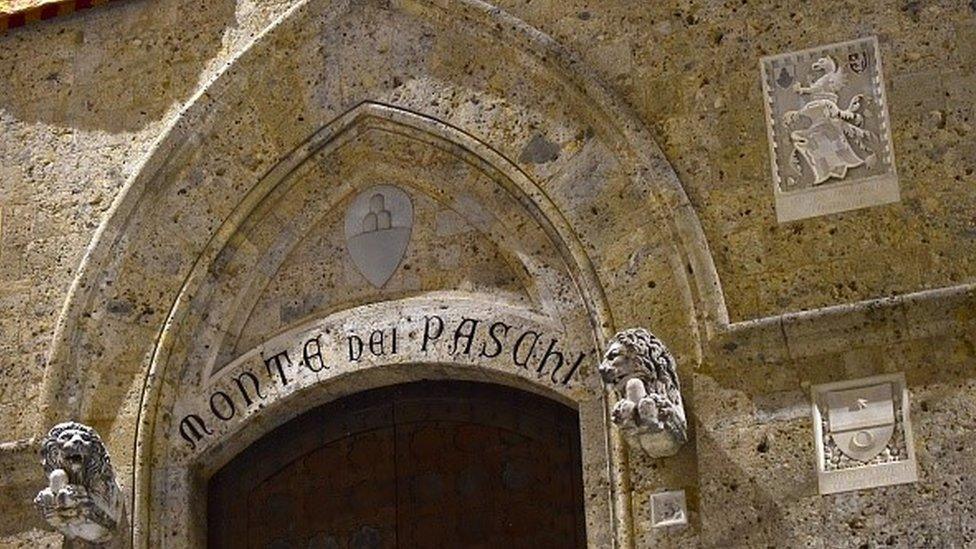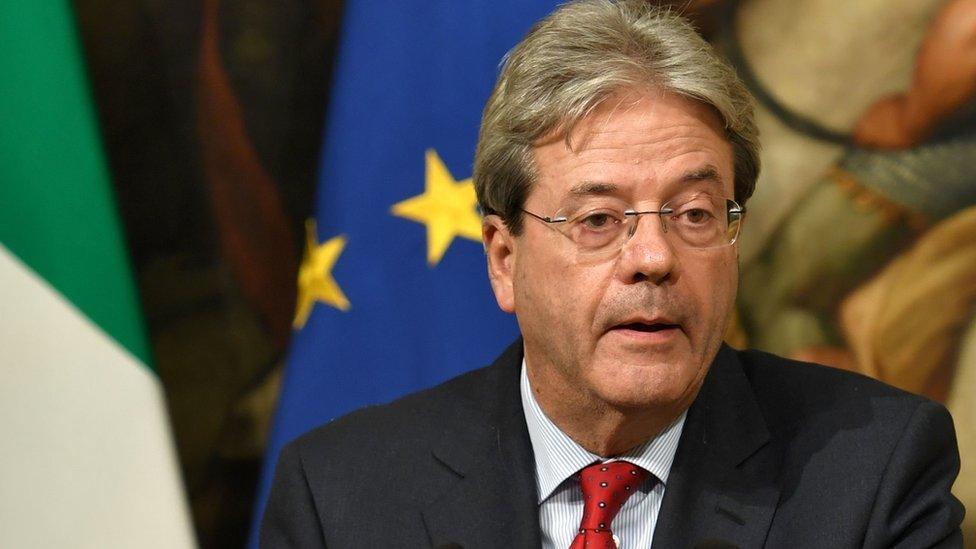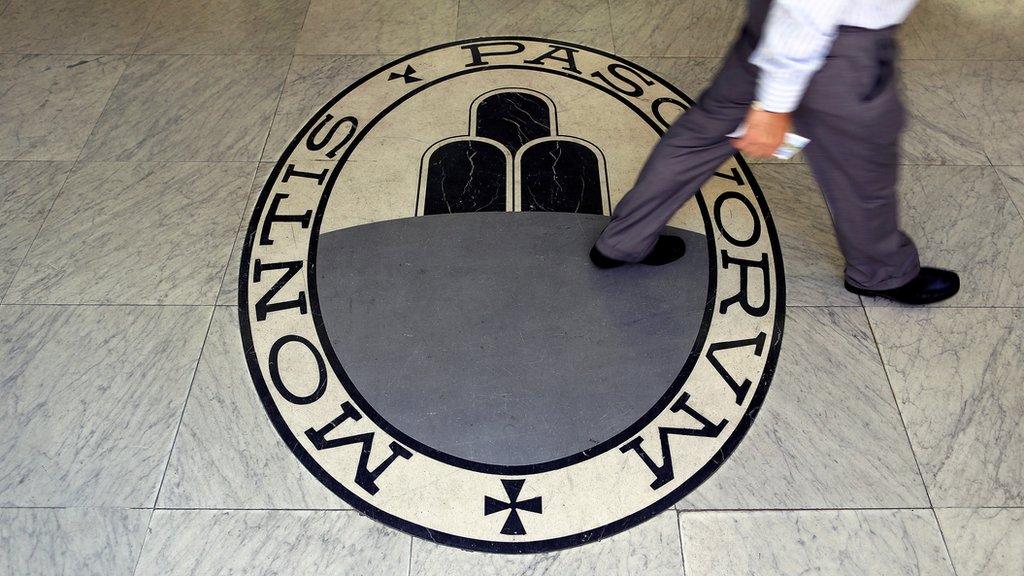Italy approves a €20bn bailout plan for its banks
- Published

The Italian parliament has approved a government plan for a possible €20bn (£16.8bn) bailout of the country's banks.
The Italian Treasury will probably have to rescue Italy's third largest lender, Monte dei Paschi, by the end of next week.
The rescue fund will be used to prop up other banks as well.
Earlier, Monte dei Paschi revealed that it could run out of funds by next April, using up nearly €11bn (£9.2bn).
Previously it had said it had the funds to stay afloat for 11 months.
It added that by next May, it could burn through even more - €15bn (£12.6bn) in total.
Founded in 1472, Monte dei Paschi is said to be the oldest surviving bank in the world.
The bank suspended trading in its shares on Wednesday morning, when they fell to their lowest level since the bank's stock market flotation in 1999.
After a resumption in trading, they were suspended again in the afternoon, after reports emerged that the bank's own plan to raise extra funds was on the verge of falling through, less than 24 hours before its deadline.
The bank has been trying to raise €5bn (£4.2bn) in fresh capital to stage its own rescue, but so far it has raised only €500m (£420m).
If the bank cannot arrange a successful private sector bailout, the Italian government will almost certainly step in.
Monte dei Paschi failed a European Union stress test in July because it has billions of euros of risky loans on its books, made to clients who cannot afford to repay them.

The Italian Prime Minister Paolo Gentiloni
The situation has worsened since then.
The new Italian prime minister, Paolo Gentiloni, has vowed not to let the bank fail, for fear that its collapse could topple the rest of Italy's heavily indebted banking sector.
Failure of the bank would threaten the savings of thousands of Italian citizens.
The funds for the impending government bailout have been approved by both the lower and upper houses of the Italian parliament.
The parliamentary measure said that the government could borrow the required money to provide "an adequate level of liquidity into the banking system" and that the government could support a lender's finances by "underwriting new shares".
The Italian finance minister, Pier Carlo Padoan, said the impact on savers of a state bail-out would be "minimal or non-existent".
The European Commission said it had "noted" the Italian government's request to the Italian parliament for authorisation to change some public finances targets.
"The Commission is in close and constructive contact with the Italian government," it added.
- Published20 December 2016

- Published12 December 2016

- Published5 December 2016